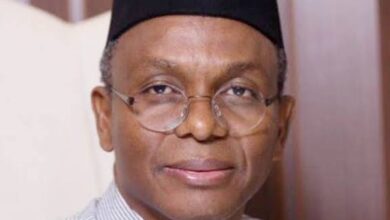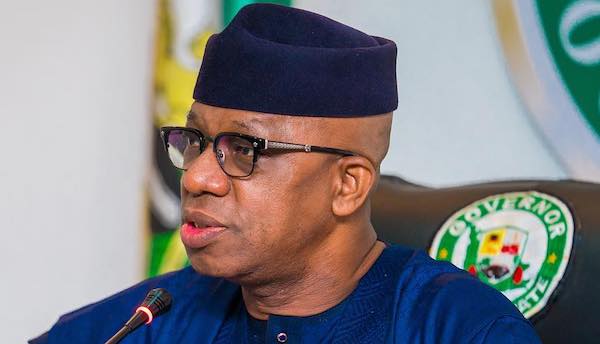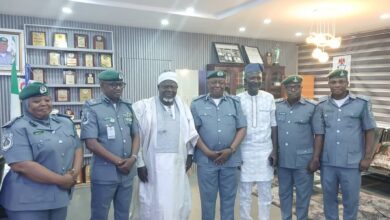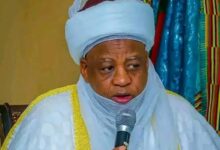Nigeria mobilises investment momentum with high-level Mission 300 energy forum

By BASHIR ADEFAKA
“The good news? Change is already happening. From launching Africa’s first costed Energy Transition Plan to building the world’s largest energy access results-based financing programme, Nigeria is proving that African-led solutions can power the future,” said Damilola Ogunbiyi.
The Federal Government of Nigeria has expressed its determination to tackle energy poverty with a high-level Stakeholder Engagement forum towards the implementation of the National Energy Compact under the Mission 300 initiative.
The government-led forum, which is a critical step towards tackling energy poverty, will hold on Tuesday, July 8, 2025 through the Federal Ministry of Power and the Federal Ministry of Finance, in collaboration with Sustainable Energy for All (SEforALL).
Tagged Mission 300, the initiative is championed by the World Bank Group and the African Development Bank, with key support from The Rockefeller Foundation, the Global Energy Alliance for People and Planet (GEAPP) and SEforALL.
The project is geared towards achieving the ambitious goal of connecting 300 million people across Africa to electricity by 2030, alongside other African countries, with Nigeria as one of twelve countries selected for the first phase of Mission 300 implementation and has committed to bold reforms to expand energy access, scale up renewable energy and attract private sector investment. To drive this effort, the government has established a high-level Compact Delivery and Monitoring Unit to oversee and coordinate the delivery of Mission 300 targets.
To propel coordinated action and unlock investment, the Compact Delivery and Monitoring Unit, through the Stakeholder Forum, will bring together senior government officials, development partners, and private sector leaders to discuss progress and showcase implementation efforts for Nigeria’s National Energy Compact, launched at the Dar es Salaam Energy Summit in January 2025.
The Compact outlines clear, investable targets: doubling the annual electricity access growth rate from 4% to 9% and increasing access to clean cooking solutions from 22% to 25% per year. These targets signal Nigeria’s commitment to achieving universal energy access by 2030 and creating a predictable, results-driven environment for energy investments.
The forum focuses on the five strategic pillars of Nigeria’s Mission 300 Compact, each designed to unlock investment and drive market transformation: Infrastructure Rehabilitation and Expansion to create a bankable pipeline of grid and off-grid projects through least-cost planning and technical capacity building.
Last-Mile Access to open new markets by extending electrification to underserved communities. Clean Cooking to promote the widespread adoption of clean cooking solutions to reduce reliance on traditional biomass fuels. Financially Viable Utilities to improve creditworthiness and attract capital into the power sector. Private Sector Participation through clear incentives, de-risking mechanisms, and enabling policies. Regional Integration to scale investment opportunities across borders and enhance power trade.
“Nigeria is showing real leadership in driving forward the ambition of Mission 300. Its progress shows what is possible when political will, bold reforms, and clear, investment-ready targets come together. The African Development Bank is proud to stand with Nigeria to help translate this ambition into reality, mobilizing funding, strengthening institutions, and unlocking private capital to ensure millions more gain access to reliable, affordable, and sustainable electricity,” said Wale Shonibare, Director, Energy Financial Solutions, Policy and Regulation, African Development Bank
Speaking ahead of the forum, the Honourable Minister of Power, reaffirmed the Federal Government’s commitment: “Mission 300 is more than an initiative – it is a transformative opportunity to reshape Nigeria’s energy future. We are committed to working with our partners to ensure affordable, reliable, and sustainable electricity for all Nigerians and we invite all stakeholders across government, development, private sector, and civil society to join this critical initiative to build an inclusive and resilient energy sector for Nigeria.
“Much of what’s driving Mission 300 started here in Nigeria, from reforms to the Nigeria Electrification Project. Nigeria is showing what’s possible at scale and speed. But without power, the country risks losing $11 billion in economic growth each year, not because their youth lack ambition, but because they lack electricity.
“The good news? Change is already happening. From launching Africa’s first costed Energy Transition Plan to building the world’s largest energy access results-based financing programme, Nigeria is proving that African-led solutions can power the future,” said Damilola Ogunbiyi, CEO and Special Representative of the UN Secretary-General for Sustainable Energy for All, and Co-Chair of UN-Energy.









